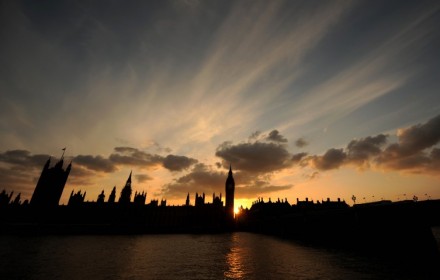All Change, Please
Life is a constant process of modification and adaptation, The basis of our identity is forged early on through the interaction with our parents. Our whole world is our family, our home. But then as we grow, become more independent, explore our environment, other people and situations influence us; extended family, friends, school, holidays, university, marriage, job; they all accrete to our personality to form a distinct, recognisable identity. But it doesn’t stop there. We continue to remodel our personality throughout our life. This usually occurs by a gradual process of evolution, but it sometimes occurs more dramatically by crisis and revolution.
So what is it that changes us? The simple answer is experience; the things that happen. If the environment changes, then we either adapt and grow or we stay put, stuck in the past. Not all events change us, of course; most of what happens can be accommodated within the confines of our experience and serve only to reinforce our view of the world. But occasionally, we encounter someone or live through some situation that so outside our experience that we are forced to adjust our whole way of thinking to incorporate it.
Change is an emotional interaction. Things that are different challenge, excite, shock, frighten and even depress us. If we engage with them, we may feel envious, guilty, ashamed or angry. Sometimes we may be able to change the situation, but more often than not, we can’t; the only thing we can change is ourselves. Working through, coming to terms with, are the processes of change; the reconstruction of the personality that develops out of emotional crisis. So if something affects us, makes us think and feel, then we are changed by it. Change is instigated by emotion. We fall out with somebody, argue, disengage, fume, but then later, sometimes much later, we pause, start to see it from their point of view, and reconcile our differences. We are changed by what has happened.
‘Love changes everything’, wrote Andrew Lloyd Webber. Such a deep emotional identification with another human being results in coalescence, a blending of experience that changes both. Change requires an interaction, an exchange. We are social beings; other people change us. Conflict and love; we are changed by sharing of intense emotional experience.
But it’s not just direct emotional experience that changes us. We can be adjusted by culture. Art, literature, science, technology, religion, politics are all agents of cultural change. They facilitate change in ourselves by altering the emotional environment. They can rearrange the way societies perceive their existence and influence the choices they make. Somebody proves that God no longer exists or that world is finite, and suddenly the restrictions of people’s behaviour are lifted and they change. The ability to communicate instantly with somebody at the other side of the world, the way we experience war, earthquakes and tsunamis in the comfort of our living room as they are happening, the way we can shop, pay bills, book holidays, conduct our jobs without leaving home; all off this has altered the way we are.
Governments, yes even Conservative governments, are agents of social change; they change the social environment by legislature and the people have to move into it.
Architects also change the social environment. Geoff Cohen said on Radio 4 last week that good architecture must not only be functional, it has to create hope and space for emotional development. Jaume Plensa (currently at The Yorkshire Sculpture Park) creates environments for peace and meditation as well as exciting spaces where change can happen. His sets for opera create such dramatic possibilities.
Change the environment, change the meaning. If we move away, get another job, we mix with a whole new social group and we are changed. If we separate from our partner, move on, marry someone else, we become a different person. Relationships change people, probably more than anything else. Parents and teachers create the environment/space in which children can grow, but eventually the child has to separate. A good teacher or parent equips the child to take advantage of the opportunity. By the same token, psychotherapy can expands perception and creates possibilities for change, but only the individual can change. You not only need space to change, you need courage to take advantage of the opportunity. And the good enough parent, teacher or therapist, must facilitate a safe environment for the person to develop with confidence and not seek to overprotect and confine through selfishness and fear.




so true………..